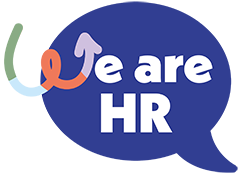Table Of Contents
- How AI is Revolutionising HR Profession
- Introduction
- Recruiting in the Age of AI: Finding the Perfect Fit
- Building the Dream Team: Onboarding and Training with AI
- Optimising Performance: AI-Driven Talent Management
- The Human Touch: The Future of HR in an AI-Powered World
- Beyond the Basics: Additional Considerations for AI in HR
- Ethical Considerations and the Human Factor
- The Future of Work: A Human-AI Partnership
- Conclusion
Introduction
The landscape of work is undergoing a significant metamorphosis, driven by the ever-evolving power of Artificial Intelligence (AI). Human Resources (HR) is no exception, with AI poised to revolutionise nearly every aspect of the field. This blog post delves into the exciting ways AI is reshaping HR practices in the UK, from streamlining recruitment to fostering a more engaged workforce.
Recruiting in the Age of AI: Finding the Perfect Fit
Traditionally, sifting through mountains of CVs and conducting interviews has been a time-consuming and resource-intensive process for HR professionals in the UK. AI is changing the game by automating key aspects of recruitment, allowing HR to focus on more strategic initiatives.
- Smarter Sourcing: Forget scouring job boards! AI-powered sourcing tools can scan a vast pool of online data, including social media profiles and professional networks (such as LinkedIn), to identify top talent with the specific skills and experience you require. These tools utilise Natural Language Processing (NLP) to understand the intent and qualifications mentioned in online profiles, creating a more efficient shortlisting process.
- Chatbots Take Centre Stage: Imagine a tireless recruiter available 24/7 to answer candidate questions and guide them through the application process. Enter chatbots, AI-powered virtual assistants programmed to engage with candidates in a conversational manner. Chatbots can handle initial inquiries, schedule interviews, and even conduct pre-screening assessments, freeing up HR for more in-depth interactions with shortlisted candidates.
- Algorithmic Matchmaking: Finding the perfect candidate is like solving a complex puzzle. AI algorithms, trained on vast datasets of successful hires, can analyse candidate profiles and past hiring data to identify patterns and predict a candidate’s suitability for the role. This data-driven approach reduces unconscious bias and ensures a more objective evaluation process.
Building the Dream Team: Onboarding and Training with AI
Once you’ve found the perfect candidate, AI can play a crucial role in creating a smooth onboarding experience and fostering long-term employee development in the UK.
- Personalised Learning Paths: AI can create customised onboarding programmes that cater to individual learning styles and skill gaps. Imagine new hires receiving bite-sized training modules based on their roles and prior knowledge, leading to faster knowledge absorption and improved job satisfaction.
- AI Mentorship: New hires often crave guidance and support during their initial months. AI-powered virtual mentors can provide personalised coaching, answer questions, and offer feedback, creating a valuable support system that complements human interaction with experienced colleagues.
- Microlearning on Demand: In today’s fast-paced environment, continuous learning is essential. AI platforms can recommend microlearning modules based on an employee’s role, current skills, and career aspirations. These bite-sized learning nuggets can be delivered through mobile apps, allowing employees to learn and upskill at their own pace.
Optimising Performance: AI-Driven Talent Management
Employee performance management is crucial for driving organisational success. AI can empower HR to create a data-driven approach to performance evaluation and development in the UK.
- Real-Time Performance Feedback: Traditional performance reviews often lack immediacy and can feel disconnected from day-to-day work. AI-powered feedback tools can analyse employee data, such as project progress and key performance indicators (KPIs), to provide real-time feedback that helps employees course-correct and continuously improve.
- Predicting Potential: Imagine identifying high-potential employees before they even express interest in a promotion! AI algorithms can analyse past performance data, skills assessments, and internal mobility patterns to predict which employees possess the potential for leadership roles. This allows HR to proactively groom and develop future leaders.
- Preventing Turnover: Employee turnover can be a costly setback for any organisation. AI can analyse employee sentiment data, such as survey responses and internal communications, to identify potential dissatisfaction and predict flight risk. By proactively addressing concerns and offering targeted engagement initiatives, HR can reduce turnover and retain valuable talent.
The Human Touch: The Future of HR in an AI-Powered World
While AI offers a plethora of benefits in HR, it’s important to remember that it is a tool, not a replacement for human expertise. The human element remains crucial for building strong relationships, fostering a positive work culture, and making complex ethical decisions.
The future of HR in the UK lies in a collaborative approach where AI automates routine tasks, allowing HR professionals to focus on strategic initiatives, employee relations, and fostering a thriving work environment. HR professionals with strong analytical skills and the ability to leverage AI effectively will be at the forefront of this transformation.
Beyond the Basics: Additional Considerations for AI in HR
As AI continues to evolve, we can expect even more innovative applications in HR, particularly in the UK, where data privacy regulations are a key consideration. Here are some exciting possibilities:
- Diversity and Inclusion: AI algorithms can be used to analyse recruitment data and identify potential bias in the shortlisting process. By highlighting areas where bias might creep in, HR professionals can take corrective measures to ensure a diverse and inclusive talent pool.
- Employee Wellbeing: AI-powered sentiment analysis tools can monitor employee communications and social media activity to identify potential signs of stress or burnout. Early detection allows HR to intervene with support mechanisms and promote a healthy work-life balance.
- Reskilling and Upskilling: The ever-changing nature of work demands a continuous learning mindset. AI platforms can curate personalised learning pathways that align with individual skill gaps and future job requirements within the organisation. This ensures a future-proof workforce equipped with the skills needed to thrive.
- Compliance and Risk Management: Navigating the complex web of employment law can be a challenge for HR teams. AI-powered compliance tools can stay up-to-date on the latest regulations and identify potential legal risks associated with HR practices, helping organisations stay compliant.
Ethical Considerations and the Human Factor
While AI offers a powerful toolkit for HR professionals, ethical considerations must be at the forefront. Here are some key aspects to remember:
- Transparency and Explainability: AI algorithms can be complex “black boxes.” It’s crucial to ensure transparency in how AI decisions are made, particularly in recruitment and performance management. This fosters trust and allows for human oversight.
- Data Privacy: Data is the fuel for AI. In the UK, where the General Data Protection Regulation (GDPR) governs data privacy, HR professionals must ensure compliance with data protection regulations when collecting, storing, and using employee data for AI applications.
- Human Oversight: AI is a powerful tool, but it should never replace human judgement. HR professionals must maintain oversight of AI-driven processes and ensure that ethical considerations are considered when making decisions that impact employees.
The Future of Work: A Human-AI Partnership
The future of HR in the UK is one where AI and human expertise work hand-in-hand. AI will automate routine tasks, freeing up HR professionals to focus on the human aspects of work, such as building relationships, fostering a positive work culture, and developing a high-performing workforce.
By embracing AI while remaining mindful of ethical considerations, HR professionals can create a future of work that is not only productive but also fosters a sense of well-being and belonging for employees. This collaborative approach will be key to unlocking the full potential of AI in HR and shaping a thriving workplace for the future.
Conclusion
AI is rapidly transforming the landscape of HR in the UK. By embracing this technology and leveraging its capabilities strategically, HR professionals can create a more efficient, data-driven, and employee-centric workplace. However, it’s crucial to remember that AI is a tool, not a replacement for human expertise and ethical considerations. The future of HR lies in a collaborative approach where AI empowers HR professionals to focus on the human aspects of work, ultimately leading to a more successful and positive work environment for all.


